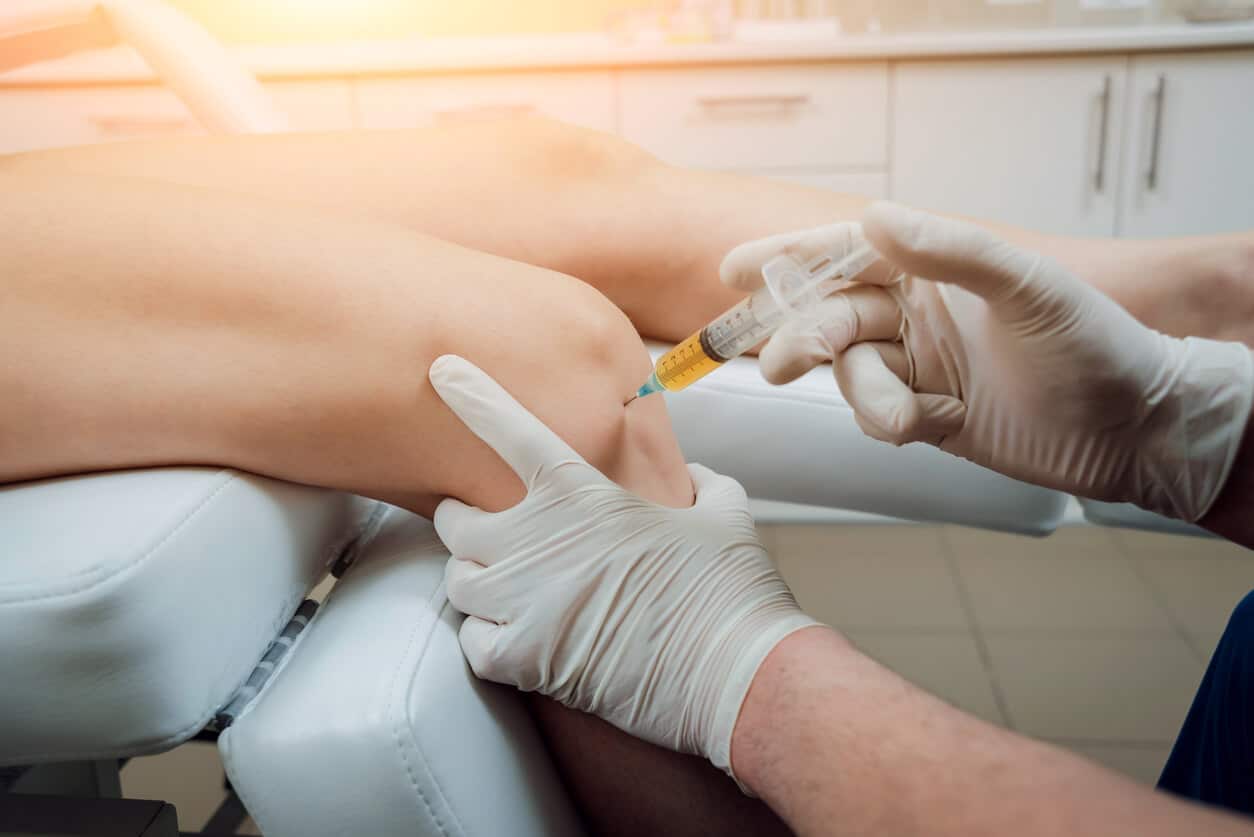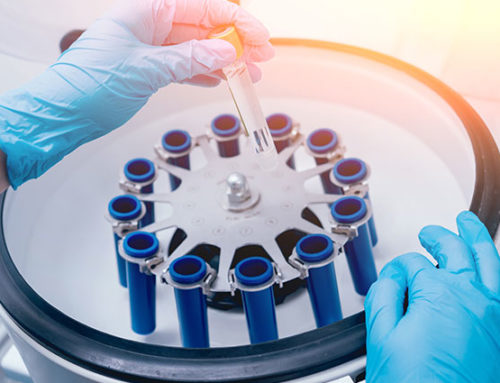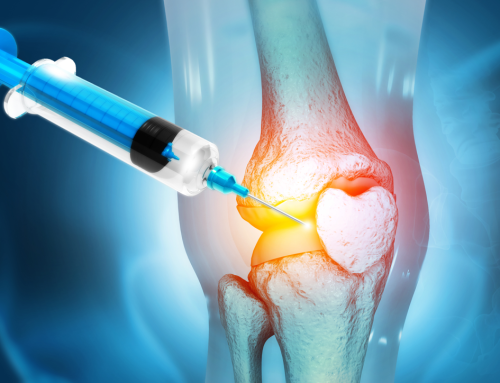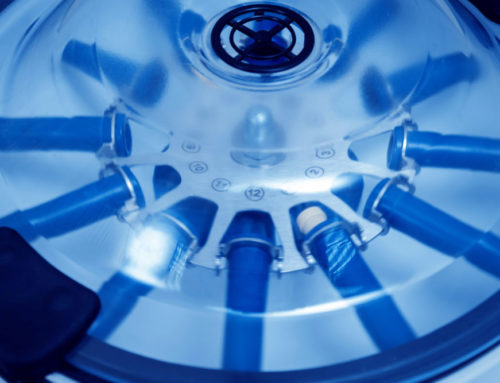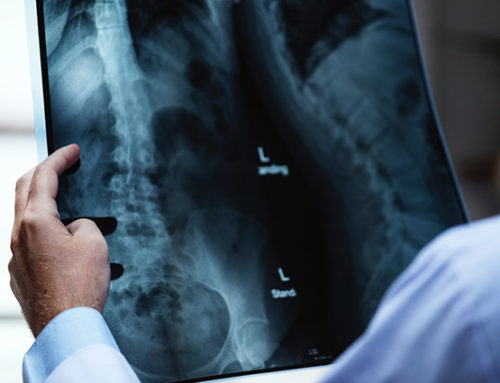PRP treatment for knee pain offers a promising alternative to surgery by using your body’s natural healing factors to repair damaged tissue and reduce inflammation.
In short, PRP treatment for knee pain:
- Stimulates Tissue Regeneration Naturally: PRP leverages growth factors from your blood to repair and regenerate damaged knee tissues.
- Reduces Inflammation and Pain: Anti-inflammatory proteins in PRP help control swelling and alleviate chronic knee pain.
- Supports Cartilage and Joint Health: PRP promotes cartilage repair, collagen production, and prevents further joint degeneration.
PRP treatment for knee conditions represents a revolutionary approach to managing joint pain without going under the knife. This innovative therapy harnesses your body’s own healing mechanisms to repair damaged cartilage, reduce inflammation, and restore function to your knee joint.
What Is PRP Treatment for Knee Pain
Platelet-rich plasma (PRP) is a concentrated solution created from your own blood that contains a high number of platelets and growth factors. These platelets play a crucial role in your body’s natural healing process by releasing proteins that promote tissue repair and reduce inflammation.
The process of PRP treatment for knee pain begins with a simple blood draw, similar to routine lab work. Your blood is then placed in a centrifuge machine that spins at high speeds to separate the different components. This process concentrates the platelets to levels that are three to five times higher than what is normally found in your blood.
How Does PRP Help You Avoid Knee Surgery
PRP treatment for knee pain utilizes your body’s natural healing abilities to address the underlying causes of knee pain and dysfunction. It leverages concentrated platelets from your own blood, rich in growth factors and proteins, to repair and regenerate damaged tissues.
Stimulates Tissue Regeneration With Growth Factors
When PRP treatment for knee pain is injected directly into the affected knee joint or surrounding tissues, it releases a high concentration of growth factors such as platelet-derived growth factor (PDGF) and transforming growth factor-beta (TGF-β).
These factors accelerate cellular repair, stimulate tissue regeneration, and enhance the activation of local stem cells, which are crucial for the healing process.
Promotes Angiogenesis and Improved Circulation
PRP treatment for the knee supports angiogenesis, the formation of new blood vessels, which increases blood flow to the damaged areas. Improved circulation ensures that injured tissues receive a steady supply of oxygen, nutrients, and immune cells, enhancing the body’s ability to heal chronic injuries, like cartilage damage or ligament strains.
Reduces Chronic Inflammation and Pain
PRP contains anti-inflammatory proteins, such as interleukin-1 receptor antagonist (IL-1Ra), that help control inflammation within the knee joint.
By reducing pro-inflammatory cytokines, PRP mitigates swelling, which is a key contributor to pain and tissue degeneration in conditions like osteoarthritis or chronic synovitis.
Supports Cartilage and Collagen Repair
Cartilage, being avascular (lacking a direct blood supply), heals slowly under normal conditions. PRP helps by delivering essential growth factors that stimulate chondrocytes (cartilage-producing cells) to regenerate damaged cartilage.
Additionally, PRP promotes the synthesis of type I and type II collagen, which are essential for the structural integrity of tendons, ligaments, and cartilage surfaces.
Prevents Further Degeneration
By targeting the root cause of knee dysfunction and promoting a healthier joint environment, PRP treatment for the knee may help slow or prevent the progression of conditions like osteoarthritis. It strengthens the joint structure and reduces the risk of further degeneration, decreasing the need for invasive procedures such as knee replacement surgery.
What Conditions Can PRP Treatment Address
PRP treatment for knee pain has shown effectiveness for several common conditions that often lead to surgical recommendations.
Osteoarthritis
Osteoarthritis is one of the most researched applications, with many patients experiencing significant pain relief and improved mobility.
Meniscus Tears
Meniscus tears, particularly partial tears or degenerative changes, may respond well to PRP therapy. The treatment can help strengthen the remaining meniscus tissue and reduce associated inflammation.
Ligament Injuries
Ligament injuries, including mild to moderate tears of the ACL, PCL, or collateral ligaments, may benefit from PRP injections. The concentrated growth factors help support the healing of these important stabilizing structures.
Tendon Problems
Tendon problems around the knee, such as patellar tendinitis or quadriceps tendinitis, often improve with PRP treatment. The therapy addresses the underlying tissue damage that causes chronic pain and dysfunction.
PRP Treatment for Knee Near Me in Cary, Holly Springs, and Morrisville, NC
PRP treatment for knee pain offers hope for patients seeking alternatives to surgery while addressing the underlying causes of their discomfort. This innovative therapy harnesses your body’s natural healing capabilities to reduce pain, improve function, and potentially delay or eliminate the need for surgical intervention.
At Cary Orthopaedics, our experienced orthopedic specialists have extensive training in PRP therapy and other regenerative medicine treatments. We use advanced imaging guidance to ensure the precise placement of PRP injections for optimal results.
Our comprehensive approach includes thorough evaluation of your knee condition, discussion of all treatment options, and personalized care plans designed to meet your specific needs and goals. We understand that every patient is unique, and we take the time to explain how PRP treatment might benefit your particular situation.
Take the first step toward recovery by calling Cary Orthopaedics at 919.573.4825 to schedule a consultation. We look forward to serving you!
Sources
https://www.hss.edu/health-library/conditions-and-treatments/list/prp-injections

